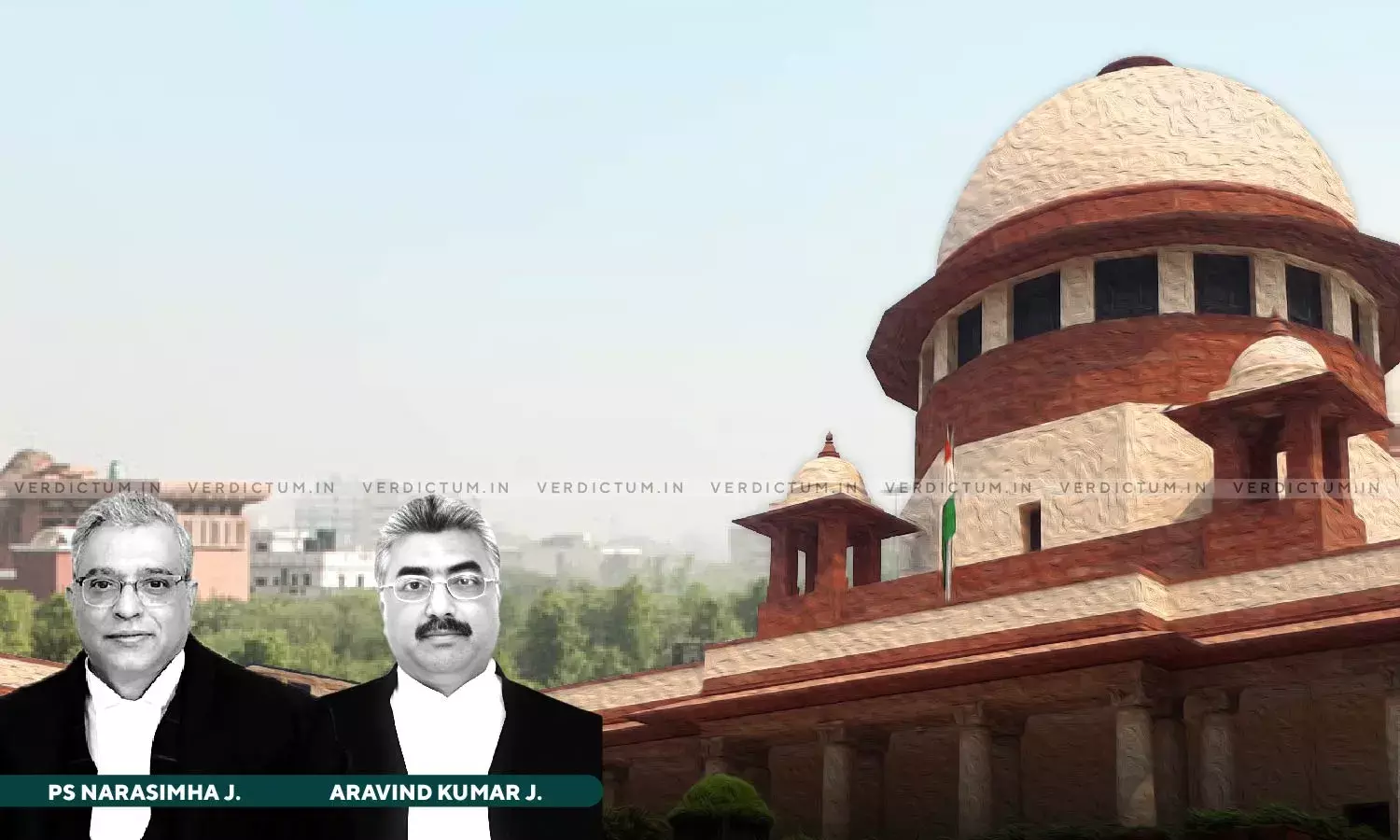Apex Court Upholds High Court's Verdict Approving Refusal Of Information Under RTI Act By IB Relating To Recruitment, Asks Young Petitioner To Focus On His Studies
The Supreme Court has upheld the Delhi High Court's Judgment that held that, as per Section 24 of the Right to Information Act (RTI Act), the Intelligence Bureau (IB) is exempted from the rigours of the RTI Act except in cases of allegations of corruption or human rights violations.
The Bench of Justice P.S. Narasimha and Justice Aravind Kumar said, "The Special Leave Petition (SLP) is dismissed."
At the outset, the Counsel for the petitioner submitted, "I am only asking for the mark sheet (OMR), the cut-off marks.."
Justice Narasimha noted that since 2017 onwards, this case has been going on. He stressed that the petitioner, a student, should focus on his studies rather than this controversy.
While dismissing the SLP, Justice Narasimha remarked, "This is a complete diversion of a youngster's focus. You unnecessarily got into litigation rather than..... Focus on study or some other avenue that is open to youIs it a necessary Litigation for a youngster? It has become a full time job."
The Court said that even if the petitioner succeeds on law, an examination of 2017 cannot be recalled. The Counsel responded by saying that petitioner has failed in the exam and merely wants to see his answersheet to know what happened.
However, the Court was not inclined and it condoned the delay in filing the SLP before dismissing it.
Pertinently, on October 11, 2023, the High Court had observed, “Undoubtedly, the IB is an organisation specified under the Second Schedule of the RTI Act and, accordingly, under Section 24 of the RTI Act, the IB is exempt from the rigours of the RTI Act. Certain exceptions have been carved out wherein the information requisitioned is strictly in relation to (i) allegations of corruption; and / or (ii) allegations of human rights violations”. The Court had emphasized that the IB is covered under the Second Schedule and therefore exempted from the rigors of the RTI Act.
The Appellant had appeared for the Assistant Central Intelligence Officer, Grade II (ACIO II) examination, and when the results were declared, he was not selected. Later, certain newspapers reported irregularities, therefore, he had filed an application seeking information. The Appellant preferred an Appeal under the RTI Act, but no response was received. Aggrieved by the non-responsive nature of the respondent authority, he had then preferred a second appeal before the Central Information Commission (CIC/Second Appeal). Further aggrieved by the delay, he filed a Writ Petition, wherein the Court directed the CIC to consider the complaint. In 2021, the CIC passed an Order, observing that IB is an organisation that is exempted under RTI Act. Thereafter, the CIC order was challenged by way of a Writ Petition before the High Court, which got dismissed by the impugned judgment.
The High Court had ascertained the following issue: “Whether, the Respondent was justified in passing the CIC Order, i.e., an order upholding the rejection of the Appellant's RTI Application, on account of (i) the IB being an organisation specified under the Second Schedule of the RTI Act read with Section 24 of the RTI Act; and (ii) the information failing to satisfy the exception enshrined under the proviso to Section 24 of the RTI Act.”
The Bench had noted that the IB is an organization specified under the Second Schedule of the RTI Act, and per Section 24 of the Act, the IB is exempted from the rigors of the RTI Act except in cases of allegations of corruption or human rights violations. The Court had observed that the Appellant had not sought information related to the category outlined in the abovementioned provisions. Therefore, the Court had observed no infirmity in the Judgment.
Cause Title: Adarsh Kanojia v. Union Of India [SLP(C) No. 11434-11435]




